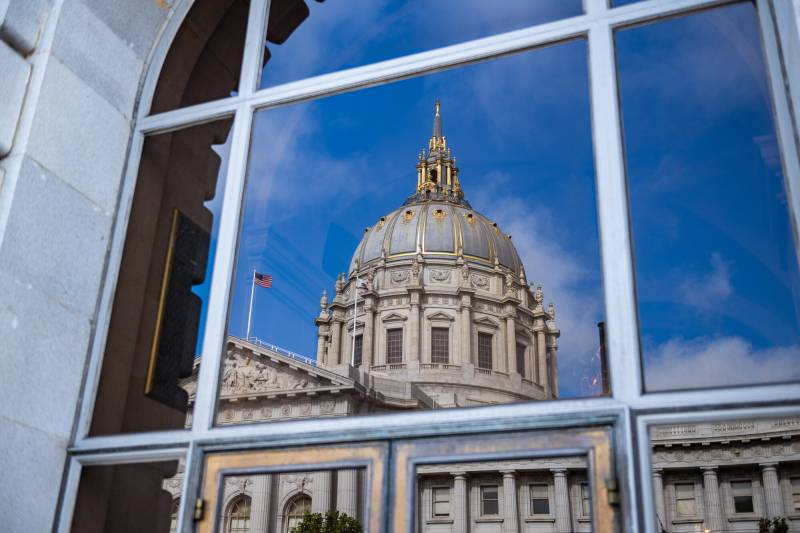With less than 100 days until the November election, KQED reporters are here to answer your questions about local, state and national races to prepare you for Election Day. Sign up for KQED’s News Daily so you don’t miss any answers.
This week’s focus is readers’ questions about San Francisco’s mayoral race.
Q: What powers does the San Francisco mayor have? What are the promises that a mayoral candidate, if elected, cannot fulfill?
San Francisco operates what’s known as a “strong mayor” system of government, which includes an elected mayor, a board of supervisors and other elected officials like the city attorney.
Legislative power
That system gives the mayor several distinct powers, including introducing, approving or vetoing legislation. Another primary responsibility for the mayor is overseeing and proposing the annual budget — which this year topped off at nearly $14.6 billion.
“Veto power over legislation and line item budget veto power — that is very much strong mayor power,” San Francisco State University political science professor Jason McDaniel says.
Appointment & Emergency power
The mayor can also appoint members to different boards and department heads, as well as a replacement for an elected office if there is an unexpected vacancy before an election.

